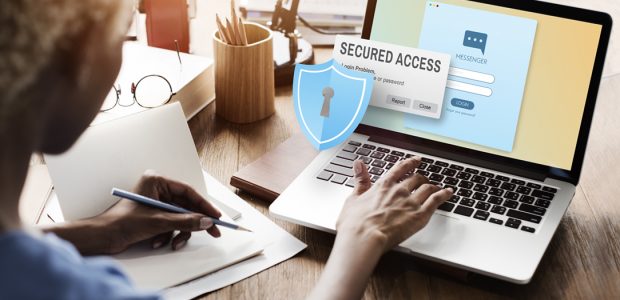COVID-19 has impacted our daily life and the economy tremendously, and we can expect more of the same for at least another month, if not into the summer. To protect the health and safety of your customers, your bank has probably limited in-person transactions, encouraging customers to conduct their banking business online.
The pandemic has brought about a time of uncertainty, inciting anxiety and fear. Identity thieves and hackers like to use times of disaster to take advantage of a panicked public. Securing your bank website is essential, especially as customers perform more business transactions online. This blog explains why cybercrime and fraud run rampant during times of crisis, the methods cyber thieves use to exploit the vulnerable, and what you can do to keep your bank and your customers safe.
- The History of Fraud During Disasters
- Types of Disaster Fraud
- Fraud and Cybercrime Prevention
- Final Words
The History of Fraud During Disasters
In the aftermath of Hurricane Katrina in 2005, the federal government made billions of dollars available to aid citizens along the Gulf Coast who were devasted by the loss of property and life. Unscrupulous thieves saw the opportunity to prey upon the hurricane victims who were desperate to rebuild their lives. Posing as representatives of the Federal Emergency Management Agency (FEMA), relief organizations, and financial institutions, thieves convinced victims to provide their identifying information and account numbers to receive help.
In response, the Department of Justice joined forces with law enforcement and regulatory agencies to form the National Center for Disaster Fraud (NCDF) under the Criminal Division of the Department of Justice. Since 2005, NCDF has handled more than 95,000 complaints of disaster fraud throughout the United States and its territories.
Types of Disaster Fraud
The Consumer Financial Protection Bureau (CFPB) lists four common scams used to defraud the public: fake charities, posing as government officials, mortgage repayment or modification offers, and robocalls. With unemployment rates breaking record numbers in March and the worse yet to be seen for April, the COVID-19 pandemic has made millions of Americans financially vulnerable.
Hundreds of funds and charities are springing up across the country to raise money for research, supplies, and other support. Americans are willing to open their wallets without vetting the legitimacy of such organizations. With the passage of the Families First Coronavirus Response Act (FFCRA) and the Coronavirus Aid, Relief, and Economic Security (CARES) Act, those undergoing financial hardship eagerly give strangers their Social Security and account numbers to receive aid. The unemployed, who are having difficulty making ends meet, are searching for ways to delay monthly payments for housing and utilities.
Desperation and compassion can cloud judgment or cause people to make rash decisions. People provide credit card or bank account numbers without doing research, making them easy marks for cyberthieves.
Fraud and Cybercrime Prevention
You want to educate your customers and employees to be vigilant about safeguarding personal and account information. You can also use this time to check your bank website and network for vulnerabilities and weak spots. During the pandemic, your website may be more susceptible to DDoS, phishing, and malware attacks.
With more customers completing banking transactions online, your bank website will ultimately see an increase in traffic. A DDoS attack can flood your web host with false requests. This can cause your website to run slow or even bring it down completely.
Phishing occurs when a cyber thief sends a fraudulent email to your customers, asking them to download an attachment or to log into their online banking account. The attachment may be a virus or malware that can infect their — and your — system. If a link is provided, it may lead to a counterfeit website that will collect the customer’s login and account information. By having an HTTPS site with an installed SSL certificate on your site, cyber thieves will have a difficult time duplicating your site.
Finally, installing anti-virus and anti-malware on all your networked computers will provide you some level of protection agent hackers. However, you will be better prepared if your web hosting provider scans your site daily for the newest forms of attacks.
Final Words
COVID-19 has changed the way we live and do business. You need to stay abreast of any new cybercrime threats so you can act — or react— accordingly in case your bank or credit union is affected.
While you may not be able to control the daily changes to your banking operations, you can plan to combat the cyber thieves and fraudsters who are using the pandemic to their advantage. With a knowledgeable web hosting provider like BankSITE® Services as your partner, your bank or credit union will always be there for your customers to help them during this trying time.


